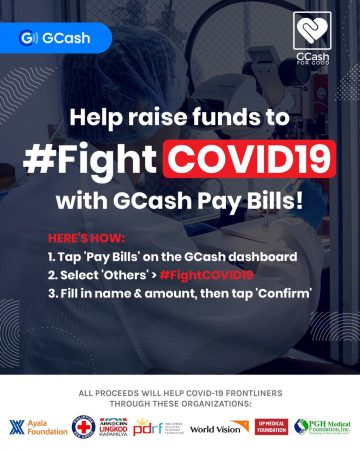
Experts all over the world believe that to mitigate the effects and end the spread of the novel coronavirus disease (COVID-19), all sectors of the society must work hand in hand to fight the deadly virus.
It is not the sole responsibility of the government to stop the global pandemic, and it is imperative for people to join in the efforts and collectively stop the virus from further infecting anyone.
This rings true in the Philippines, where the Spirit of Bayanihan is slowly being revived amid the onslaught of natural and man-made catastrophes that struck the whole country during the first three months of 2020.
Various non-government organizations and even individuals have started calling on Filipinos to help in the war against the pandemic, whether it’s through volunteerism or through monetary donations.
Donation drives have been launched by various groups to help protect frontline healthcare workers from the virus. These came amid the reported scarcity of personal protective equipment (PPEs) in hospitals.
Likewise, groups and individuals are seeking support to fund relief goods for the families that are in need of food and personal hygiene kits, as major cities and provinces impose their own community quarantine protocols.
For instance, friends Shary Laiz, Erika Jean Ente, and Alyana Singian are encouraging the Twitter universe to donate P20 to their mobile wallets to purchase hand sanitizers and soaps for the homeless. They are part of religious group Agape Christian Church International.
Quezon City-based professional alliance Save San Roque is seeking both donations in cash and in-kind to help the community of Sitio San Roque cope with the effects of the viral threat. The group aims to gather as many goods as they can to distribute to the citizens of the barangay.
People for Accountable Governance and Sustainable Action, a group of friends, also took to social media the call for donations for the purchase of a weekly “survival pack” communities in Tatalon, Talayan, Pinyahan, and Payatas as well as for the mothers in Tondo and Commonwealth. Each pack includes rice, canned goods, coffee, powdered milk, sugar, bread, and vegetables.
Youth-led movement Zero Hunger Philippines is also gathering monetary donations to provide food bags to over 10,000 families in select provinces in Luzon.
Tulong Kabataan, a youth movement, is also building up funds to supply food and hygiene kits to relocation sites and urban poor communities in Tacloban, Quezon City, and Manila.
Medical interns of Jose R. Reyes Memorial Medical Center have also launched their social-media-based donation drive for the staff of the hospital, which is in need of masks, caps, alcohol, gloves, and disposable gowns for frontline employees that are treating suspected COVID-19 cases.
Other non-profits such as Project Tanglaw, Caritas Manila, and Tayo Kabataan are pooling donations to provide food and hygiene kits to the less fortunate and those who are most hit by the threat of the virus, as well as donate PPEs to hospitals in need.
There are hundreds more donation drives that are happening across the Philippines today, signaling the strong revival of the Filipino culture of Bayanihan — only that with the strict implementation of community quarantines and social distancing protocols, donations are facilitated through mobile phones.
GCash, the leading mobile wallet in the Philippines, has been seeing spikes in the number of money transfers from one mobile wallet, as people collectively fight COVID-19 through digital donation drives.
Caritas Manila, for instance, has so far collected almost P850,000 in individual donations through GCash.
“It’s heartwarming to see firsthand how the uniquely Filipino Spirit of Bayanihan works.”

